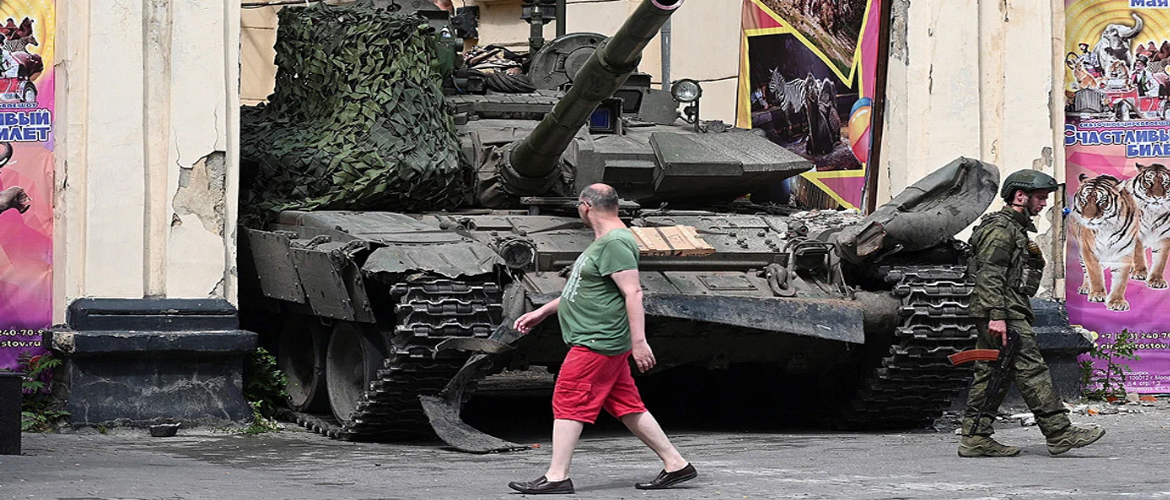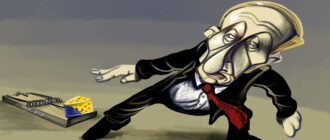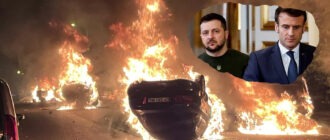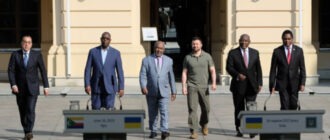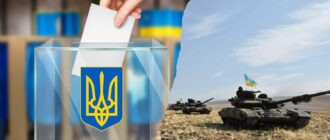The inventor of the water closet and poet at the court of Elizabeth I Tudor, John Harington, who praised his invention in verse, is known in our latitudes above all for a couplet translated by Samuil Marshak, which Samuil Yakovlevich twisted so drastically that the original was completely lost: “Rebellion can never be successful, otherwise it would be called otherwise”, while the original read: “Treason doth never prosper; what ’s the reason? For if it prosper, none dare call it treason». In the original the author used “treason”and it was translated with the word “rebellion”. Obviously, in Joseph Stalin’s time there was no time to play with the notion of state treason, and the logic of the poem was not shifted at all by the will of our classic of children’s literature. However that may be, this semantic drift is kind of fixed in our minds, which is why we often confuse the concepts, calling «state treason» a rebellion and rebellion a «state treason».
The recent events in the Russian Federation also fit this description. Whether it was treason or rebellion is for historians to decide. It began at the height of the drama, but in no less dramatic fashion it turned out to be a flop and increasingly obvious as a play production. The sheep are left well fed and the untouched wolves will either go to Belarus or go to serve on the kennels under contract with the Ministry of Defense. The front on the Russian side did not sag, although according to the laws of the genre it should have crumbled altogether if it had been at least partly a real rebellion.
Eh, they love big expensive political shows in Russia. They know how. They even shot down the air force for the sake of appearances. And the pilots who died are expendable. Military. Expendable material. Their profession is to die for their country. It pays a wage, and in the event of death, the family receives the insurance money. Remember, when they decided to dump Boris Yeltsin, houses and tenants were blowing up.
Meanwhile, the scale of the show is such that the scope of the plans behind it becomes quite obvious. They’re not going to put the whole country on red alert for the sake of trivialities. In 1999, when obscure individuals were loading explosives into the basement of an apartment building in Ryazan in front of the vigilant gentleman with the Belarusian surname Kartofelnikov, nothing less than the change of the country’s first person was at stake. Obviously, in the case of recent events, the issue was no less acute, and in all likelihood it will be resolved in one way or another as a result. Otherwise, instead of a change of first person(s), Russia will face a change of governing model, or, if you like, of the regime. Although, judging by the preliminary results, it will still only be about persons.
But let’s go through it all in order. Firstly, the allegedly rebellious «Putin’s cook» already sounds like a joke. A cook can certainly become a conspirator, but his methods will be more effective and easier than moving troops on the capital. Even if he has troops and weapons at his disposal that are far more effective than any troops. And so he could resolve the issue with Shoigu without noise, dust and even without a fancy sledgehammer.
Secondly, the rebels never met any real resistance. Rostov in particular was seized with the same ease with which the Ukrainian armed forces took Kherson. Only the latter was surrendered deliberately, but the meaning of Rostov’s surrender is more reminiscent of the «Trumpist» takeover of the Capitol in Washington. At that time, too, they met no resistance, and the result was an easy assault on state institutions that was as pyrrhic a victory as Wagner’s seizure of the Southern Military District headquarters.
Thirdly, the outcome was also odd. Having approached the capital almost closely and made a lot of noise, the army of Eugene Prigozhin accepts conditions that essentially undo all of its conquests and successes. Apart, of course, from the withdrawal of Wagner’s units from the combat zone (if that was the goal) and the disintegration of the unit as a combat participant. That is, a kind of dismissal from the Special Military Operation. I doubt that this could have been the purpose of the riot.
One could assume that, as in the case of the U.S. Capitol, the purpose of the organizers of the action was to demonstrate the pointlessness of the riot itself and the inviolability of the existing order of things, but the first persons got a little too worked up, demonstrating panic. And what President Putin said at the end of the event is just ludicrous. The claim of mass support for the rule of law by the people of Russia is a case in point! Against the backdrop of a video of cheering crowds on the streets of Rostov! To say nothing of the massive support for Prigozhin’s theses by the majority of the volunteers’ pool involved in the conflict, including the same «angry patriots» whose sceptical attitude towards Wagner and Yevgeny Prigozhin personally is well known.
If Putin really were (to remain) the sole ruler, then the punishment of the rioters should have been followed by resignations in the defense ministry. However, there aren’t any. Minister Shoigu, Chief of the General Staff Gerasimov all remain in their seats. Which means, who at the end looks weak? That’s right, Putin! That’s the third point.
Of course, Putin still has time to resolve the issue of Shoigu in a positive way for the rebels and other turbo-patriots, but such a development is looking increasingly unlikely. However, immediately after the failed (a planned failure) putsch, a bill on amnesty for political prisoners was submitted to the Duma. Which is a blow to the conditional «party of war,» which advocates the militarization of all spheres, above all ideology. It is not without reason that the Club of Angry Patriots has already issued a statement calling the Russian authorities anti-people and promising to save Russia in spite of the latter.
That is, the «party of peace», aka the «new Minsk» party, is back on top. Putin is portrayed as a lost fool, who has made a lot of mistakes that are costing tens of thousands of lives and is unable to solve the problems under his nose, while Alexander Lukashenko, president of neighboring Belarus and an active supporter of a peaceful settlement of the Ukrainian-Russian conflict, solves them instead. Now he is solving Russia’s internal problems, and he is doing it much more effectively than Putin himself. In other words, he becomes a player in domestic Russian politics.
In fact, Belarus received a lot from the Russian Federation recently: nuclear weapons, and now people capable of guarding and using them, should the need arise. Russia, on the other hand, has shown little resistance to riots. And a riot in a nuclear country is no small matter. Today it is the systemic and business-oriented Prigozhin, but tomorrow it could be the angry patriots with Igor Ivanovich Strelkov at the helm.
It is not for nothing that the military who refused to defend Rostov against Wagner share his criticism of the military leadership and the course of the Special Military Operation, including the accusation of plundering the budgets of Donbas. Anyone who is involved in Donbass affairs knows that in order to participate in the governance of the LDPR, you have to pull chestnuts out of the fire for the esteemed husbands of the Defense Ministry and the Administration of the President. Anyone who, for various reasons, does not want to do so is thrown out of the system.
Belarus, on the other hand, is resistant to revolt. And if anyone does revolt there, it will not be the turbo-patriots, but rather the pro-Western forces. Thus, the transfer of Russian nuclear weapons to Belarus is essentially the start of the Kremlin’s nuclear disarmament campaign, initiated by the latter. It was not without reason that the initiative was actually supported by U.S. President Biden, who did not see in this event any threat that seemed obvious to the world media. Obviously, this kind of partial Russian nuclear disarmament brings us closer to a «grand bargain» on Ukraine as well, since nuclear security issues are among the fundamental contradictions between Russia and the West.
What about Ukraine — you ask? There is complete inadequacy there, a willingness to fight all the way to Sevastopol, and the Constitution on pause. That is, dictatorship and the abolition of all elections. But a dictatorship is while there is a war going on. And a peace treaty is an opportunity to hold elections. This means that, apart from the president and his «servants», everyone involved in the political process becomes an advocate of peace talks. And former President Poroshenko is generally a dove of peace, having organised the first and second Minsk agreements and kept the conflict with the Russian Federation in the political arena.
And yes, the AFU commander-in-chief and the head of intelligence, who formed the backbone of the Ukrainian «war party», are either alive or dead. They are kind of discrete. And regardless of the actual situation, can be declared dead, even if alive, and vice versa. However, in any case, in their discrete form they are much more alive than Vladimir Putin, who, as if alive, but unable either to respond to the threats or to solve the problems that led to their emergence. After all, following peace, Russia will have to find ways for a grand bargain on the level of international relations, in which the Russian head of state will become a liability.
But how could Prigozhin, a veteran wolfman who has gone from a petty mugger to the scale of an international burglar with connections in the Kremlin, Damascus, the CAR, and who serves breakfast, lunch, and dinner to the entire national elite, put all his wealth at stake and gnaw at the hand that has given him so much? The man never made a mistake, and here he ran to fight the oak tree like Solzhenitsyn’s calf. How come? However, let’s look at the situation from a different angle. If a man owes his entire well-being to the intelligence services and his cooperation with them, he is not accustomed to arguing with his handlers. And if, say, he is offered by Lukashenko’s office to go to the USA and, in the format of the forthcoming détente, to take part in the process of meddling in the US presidential election, he will agree to this too. For it is better to testify in an American court than to be flushed into the invention of Sir Harrington mentioned at the beginning of the article. Who, let me remind you, told us about treason and we heard about rebellion.
